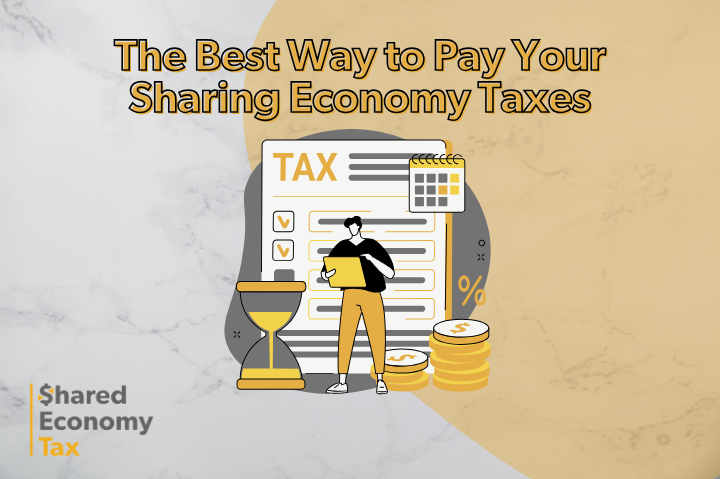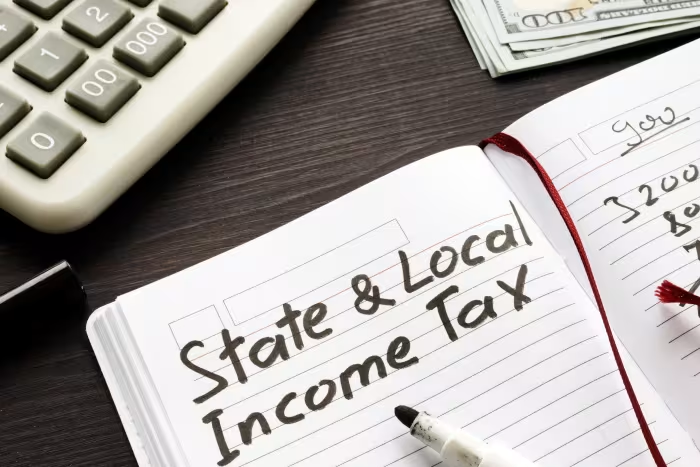
As a sharing economy business owner you have to keep track of both federal and state taxes to deal. With the addition of some sales & use tax and estimated tax payments, you have a lot on your plate. Fortunately, the federal government and the state tax boards make paying your Sharing Economy taxes convenient and simple.
In this article, I’ll review the best ways to pay taxes at both the federal and state level. If you’re looking for information on how to pay your taxes in a particular state, stay tuned. You will find a link to every state’s tax department at the conclusion of this article. Simply click your state’s name to find specific details on paying your state taxes.
How to Submit Your Taxes
The government gives you lots of options for submitting your tax payment. You can send them in the regular mail, pay with a credit or debit card over the phone, use a cash pay location like PayNearMe.
However, these methods are typically slower, and some methods can require as many as 7 business days to process. For that reason, it’s generally agreed that the best way to pay your federal and state taxes is through online payment portals, which virtually all tax authorities offer in 2025.
Typically, you will have to pay via ACH or wire transfer. Some authorities accept credit or debit cards, but they often incur an additional fee. In most cases, your electronic online payment will process instantly, so you don’t have to worry about missing the deadline due to processing delays. Plus, online payments are much more convenient and less stressful
How to Pay Taxes Online
To pay taxes online, you have to first register for an account. You can do this by visiting the IRS website. From there you can elect to make a direct payment to the IRS or set up an installment agreement.

You can also pay your estimated taxes online. Estimated taxes are quarterly taxes that you pay if you are self employed. If you anticipate to owe more than $1,000 in taxes, then you may be required to make these quarterly tax payments, even if you are only working part time. Estimated tax payments are due: April 15th, June 15th, Sept. 15th, and Jan. 15th, unless the 15th falls on a holiday or weekend, then the due date falls on the next business day.
If you participate in the sharing economy, loaning out your vehicle on Turo, or renting out your home on Airbnb, then you may liable for estimated tax payment, even if it is only a side hustle. To learn more about estimated taxes and whether your earnings are subject to them talk to your tax advisor.
How to Pay Your State Taxes
Unfortunately federal and state taxes are separate, and therefore need to be filed and paid separately. If you conduct business in more than one state you may be liable to owe taxes in more than one state. It all boils down to where you have nexus.
Nexus is having a financial presence in another state. For example, if you own property in more than one state, and rent out that property on Airbnb, then that would be considered nexus, in which case you may owe income tax in that state.
Most states levy a state income tax. A few do not including: Alaska, Florida, Nevada, New Hampshire, South Dakota, Tennessee, Texas, Washington, and Wyoming. However, a few of these states may tax investment income and dividends.

Click on your state’s name below to learn how to pay your state taxes:
Closing Thoughts
Tax rates vary from state to state and even city to city, which is why it is recommended to work with a SALT accounting specialist if you conduct business in more than one state.
If you’re interested in meeting with an advisor, set up a one-on-one strategy session Shared Economy Tax. Our tax pros have deep expertise in state & local taxes, and they can answer your toughest tax questions.
Or, you can sign up for our FREE newsletter using the form below for more tax tips!